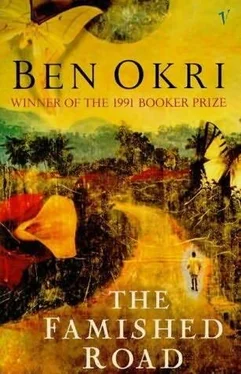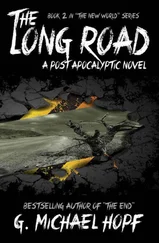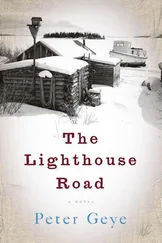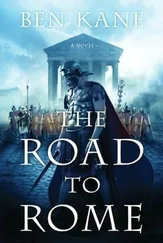Ben Okri - The Famished Road
Здесь есть возможность читать онлайн «Ben Okri - The Famished Road» весь текст электронной книги совершенно бесплатно (целиком полную версию без сокращений). В некоторых случаях можно слушать аудио, скачать через торрент в формате fb2 и присутствует краткое содержание. Жанр: Современная проза, на английском языке. Описание произведения, (предисловие) а так же отзывы посетителей доступны на портале библиотеки ЛибКат.
- Название:The Famished Road
- Автор:
- Жанр:
- Год:неизвестен
- ISBN:нет данных
- Рейтинг книги:5 / 5. Голосов: 1
-
Избранное:Добавить в избранное
- Отзывы:
-
Ваша оценка:
- 100
- 1
- 2
- 3
- 4
- 5
The Famished Road: краткое содержание, описание и аннотация
Предлагаем к чтению аннотацию, описание, краткое содержание или предисловие (зависит от того, что написал сам автор книги «The Famished Road»). Если вы не нашли необходимую информацию о книге — напишите в комментариях, мы постараемся отыскать её.
The Famished Road — читать онлайн бесплатно полную книгу (весь текст) целиком
Ниже представлен текст книги, разбитый по страницам. Система сохранения места последней прочитанной страницы, позволяет с удобством читать онлайн бесплатно книгу «The Famished Road», без необходимости каждый раз заново искать на чём Вы остановились. Поставьте закладку, и сможете в любой момент перейти на страницу, на которой закончили чтение.
Интервал:
Закладка:
He saw their long rule and the chaos when they are overthrown. He argued in three great courts of the spirit world, calling for justice on the planet. He argued with fantastic passion and his case was sound but he was alone. He didn’t see the mighty multitudes allover theworldintheirlonely solidarities,pleadingcasesinthesupreme courts of spirits, pleading for justice and balance and beauty in the world, for an end to famishment and vile wars, destruction and greed. Dad was alone because he didn’t see the others, the multitudes of dream-pleaders, invading all the courts of the universe, while struggling in the real hard world created by the limitations in the minds of human beings. I followed Dad sometimes in his cyclical dreams. I followed him in his escape into the great realms and spaces, the landscapes of genius, the worlds before birth, the worlds of pure dreams and signs. I followed him sometimes in his brief reunion with his own primeval spirit and totem, in his fleeting contact with glimmerings of his true destiny. I saw angels erasing some of the memories of his journeys. He travelled far and his spirit ached and as he sweated in our room, dampening the bed, it poured with rain outside and the floods rearranged the houses of the road. The rains were sporadic. Frogs and bugs and diseases roamed in our lives and children died in the mornings when the politicians on their trucks announced the dawn of our new independent destiny. Dad saw the advancing forms of chaos and fought them alone in his sleep, his body swelling with rage, and the forms overcame him and washed over his life and when he tossed and turned Mum would light a mosquito coil, a stick of incense, and a candle, and pour some ogogoro for us and would pray at the door lintels. Mum prayed in three languages. She prayed to our ancestors, she prayed to God, and she prayed to the angel of all women. Mum prayed for simple things that made me weep while the darkness flowered in our room. She prayed for food. She prayed for Dad to get well. She prayed for a good place to live. She prayed for more life and for suffering to bear lovely fruits. And she prayed for me. For three days Mum prayed on borrowed wine. The spaces in our lives grew smaller. Mum grew leaner. Her voice began to disappear. Her eyes hid from the world, retreating into the depths of her head’s dreaming. Her bones became more visible. Her blouses began to slip from her shoulders. Waves of demented mist passed over her face. I would catch her staring at Dad’s empty three-legged chair. Her eyes seemed to be looking over the photographs of her life. Always the strained smile of the hunger beneath the brave pride. Always the rats and cockroaches eating away at our dreams. Always theworld seems to find amethod to prevent her workingher way out from the corners. Always the landlords increasing our rents, the thugs telling us who to vote for, the rain leaking into our sleep. Sometimes her prayers would find Dad as he roamed the spheres that restored the balances of the earth. But Dad’s spirit was restless for justice and more life and genuine revolution and he kept ranging farther out into other worlds where the promises of power were made before birth. And Dad travelled thespheres, seekingtherestorationofourrace,andtherestoration of all oppressed peoples. It was as I followed Dad that I learnt that other spheres of higher energies have their justice beyond our understanding. And our sphere too. The forces of balance are turning every day. The rain lashes the bloated and the weak, the powerful and the silenced. The wind exposes the hungry, the overfed, the ill, the dying, and those who feed on the unseen suffering of others. But the restorations are slow because our perception of time is long. Time and truth always come round; those whoseemtoholdsway andtrytopreventtheturningofjusticeonlybringitquicker; and Dad wanted the turning now. He wanted justice now. He wanted truth now. He wanted world balance now. He raised the storms of demands in his dreams. He raised impenetrable questions. He kept asking: WHY? After eons he asked: WHAT MUST
WE DO? And then he asked: HOW DO WE BRING IT ABOUT? Pressing on, he wanted to know:WHEN?Relentlessly,twistingandturning,hedemanded:WHATIS THE BEST WAY? And with a bit more serenity, not drawing back from the inevitable self-confrontation, he asked: WHAT IS THE FIRST STEP? His body grew. Flowers fellon ourrooftop.My grandfatherappearedtomebriefly,wavingmeon.A child was born and didn’t get to its body. Was I being reborn in my father? In his journeys Dad found that all nations are children; it shocked him that ours too was an abiku nation, a spirit-child nation, one that keeps being reborn and after each birth come blood and betrayals, and the child of our will refuses to stay till we have made propitious sacrifice and displayed our serious intent to bear the weight of a unique destiny.
Each life flows to all the spheres; and as Dad slept he lived out a whole lifetime in another continent, while we listened to the rumours of Madame Koto’s meetings with powerful women in her bar, meetings in which they planned the numerous arrangementsfortherally andtheresponsibilitiesoforganisingvotesfortheirparty. It didn’t surprise us that she had recovered so quickly from the death of the prostitute. It didn’t surprise us either that she had been allocated vast sums of money to organise the women from our part of the city. Her bad foot grew larger as if the road had impregnated it; her stomach bloated with its abiku trinity. She was initiated into anothersecretsociety thatwasfamousforitsmanufacturingofreality.Shetalked about turningher bar into ahotel. Shebought great plots of land. Her driver went up and down our road in her car, knockingover goats and killingchickens, multiplying her enemies.
Madame Koto grew more powerful with the rainy season. She developed a walk of imposingand languid dignity. Her fatness becameher. Sheworeclothes that madethe beggars ill. Shetalked of leavingthewretched area;shewas scornfulof everyone. We listened to her beratingpassers-by. Shegrew morepowerfuland shegrew more beautiful as well. The rainy season swelled her frame. She incarnated all her legends into her new spirit, joined with her myths. She became all the things we whispered she was and she became more. At night, when she slept, she stole the people’s energies. (She was not the only one: they were legion.) The night became her ally. WhileDad ranged thespheres cryingfor justice, MadameKoto sucked in thepowers of our area. Her dreams gave the children nightmares. Her colossal form took wings at night and flew over thecity, drawingpower fromour sleepingbodies. Sheexpanded over the air of our existence. Her dreams were livid rashes of parties and orgies, of squander and sprees, of corruption and disintegration, of innocent women and weak men.Hersnoringalteredthegeography ofourdestinies.Slowly,whilethepeopleof the area grew weaker, more accepting, more afraid, she grew stronger. That was when I understood that conflicting forces were fighting for the future of our country in the air, at night, in our dreams, ridinginvisiblewhitehorses and whippingus, sappingour will while we slept.
The political parties waged their battles in the spirit spaces, beyond the realm of our earthly worries. They fought and hurled counter-mythologies at one another. Herbalists, sorcerers, wizards and witches took sides and as the trucks fought for votes in the streets they fought for supremacy in the world of spirits. They called on djinns and chimeras, succubi, incubi and apparitions; they enlisted the ghosts of old warriors and politicians and strategists; they hired expatriate spirits. The Party of the Rich drew support from the spirits of the Western world. At night, over our dreams, pacts were made, contracts drawn up in that realm of nightspace, and our futures were mortgaged, our destinies delayed. In that realm the sorcerers of party politics unleashed thunder, rain flooded those below; counter-thunder, lightning and hail were returned. On and on it went, in every village, every city of the country, and all over the continent and the whole world too. Our dreams grew smaller as they waged their wars of political supremacy. Sorcerers, taking the form of spirits and omens, whispered to us of dread. We grew more afraid. Suspicion made it easier for us to be silent. Silence made it easier for us to be more powerless. The forms of dominance grew more colossal in the nightspaces. And those of us who were poor, who had no great powers on our side, and who didn’t see the power of our own hunger, a power that would frighten even the gods, found that our dreams became locked out of the freedom of the air. Our yearnings became blocked out of the realms of manifestation. The battles for our destiny raged and we could no longer fly to the moon or accompany the aeroplanes on their journeys through rarefied spaces or imagine how our lives could be different and better. So we had bad dreams about one another while Madame Koto, dressed in red, her hair covered with a white kerchief, three green umbrellas in her hand, extended her powers over the ghetto and sent her secret emissaries into our bodies. Our fantasies fed her. Many of us dreamt of her as a future spirit-bride to heads of state and presidents. She became known as the Queen of the Ghetto Night. Anyone who wanted help went to her. She received only a few callers. Because she expanded so much at night, she suffered untold agonies in her body during the day. She showed no signs of pain. But the sweat on her forehead widened her wrinkles. Her prostitutes deserted her; they couldn’t forgive her for so quickly forgetting the girl’s death. When they left, the emptiness of her bar and the magnetism of her new powers drew a greater flock.
Читать дальшеИнтервал:
Закладка:
Похожие книги на «The Famished Road»
Представляем Вашему вниманию похожие книги на «The Famished Road» списком для выбора. Мы отобрали схожую по названию и смыслу литературу в надежде предоставить читателям больше вариантов отыскать новые, интересные, ещё непрочитанные произведения.
Обсуждение, отзывы о книге «The Famished Road» и просто собственные мнения читателей. Оставьте ваши комментарии, напишите, что Вы думаете о произведении, его смысле или главных героях. Укажите что конкретно понравилось, а что нет, и почему Вы так считаете.












